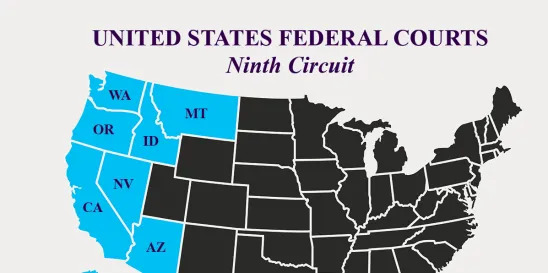Imagine you are an investor and you decide to file a lawsuit after a company that you invest in suffers a stock drop. When you get to the courthouse, you find that you are the first person to file a federal securities class action on these facts. However, because of the Private Securities Litigation Reform Act (PSLRA), the district court chooses another party to be “lead plaintiff” in the litigation. Under the control of that lead plaintiff, the court dismisses the case prior to class certification, and you want to appeal that decision. Do you have standing? Your name is in the case caption for the active complaint. You were, in fact, the very first plaintiff in this action. But you aren’t the lead plaintiff anymore.
The Ninth Circuit just addressed this question in Habelt v. iRhythm Technologies, Inc. iRhythm is a digital healthcare company whose revenues are closely tied to the Medicare reimbursement rate connected to one of its products. In 2020, the Centers for Medicare and Medicaid Services (CMS) proposed a rule that would lessen these reimbursements. When CMS eventually did endorse lower rates for iRhythm’s products, the company’s share price dropped. Soon after, an investor named Mark Habelt filed a putative securities class action in the U.S. District Court for the Northern District of California. Following the lead plaintiff provisions in the PSLRA, three other shareholders moved to be appointed lead plaintiff—notably, Mr. Habelt did not. The District Court chose the Public Employees’ Retirement System of Mississippi (PERSM) to serve as lead plaintiff. PERSM then filed two amended complaints alleging violations of the Securities Exchange Act of 1934, specifically asserting that the company and certain of its executives made false or materially misleading statements about CMS’s regulatory price-setting process and iRhythm’s knowledge of these risks. The District Court granted iRhythm’s motion to dismiss the action for failure to state a claim prior to certifying any class. PERSM chose not to appeal the judgment, but Mr. Habelt, who at this point was just a putative class member even though he was the named plaintiff in the case, appealed the dismissal.
In a split decision, the three-judge panel held that Mr. Habelt lacked standing to appeal because he was not a party to the action. Judges Thomas and Bea noted the caption of a case is not dispositive to identifying parties to the action. They pointed to Federal Rule of Civil Procedure 25, which recognizes that the case caption does not necessarily represent the current state of proceedings. Rather, the primary indicator of party status is the allegations in the operative complaint, and the judges found no mention of Mr. Habelt or his individual claims. They also held that a putative class member has no rights as a party before the class in question is certified. While there are “exceptional circumstances” that allow non-parties standing for appeals, the panel found Mr. Habelt was not “significantly” involved in the District Court proceedings such that his inclusion at this stage would be merited.
Judge Bennett wrote a lengthy dissent. He held that Mr. Habelt was a party to the case, as he initiated the suit, remained part of the action through the operative complaint, never actively removed himself from the action, and was covered by the substantive allegations of the amended complaints. He further noted that the PSLRA creates the system to appoint a lead plaintiff, but it does not remove the involvement of other plaintiffs. As the amended complaints encompassed the allegations of the initial compliant, Judge Bennett argued that Mr. Habelt’s individual allegations should be considered included in the operative complaint. Judge Bennett also noted that even if Mr. Habelt was not a party to the case, he qualified for nonparty appellate standing, because he was sufficiently involved in the litigation at the District Court and he had not received any clear notice that he lost his party status. Judge Bennett then went further to claim that if the Circuit Court reached the merits of the action, he would reverse the District Court’s dismissals as to the alleged misrepresentations.



 />i
/>i

